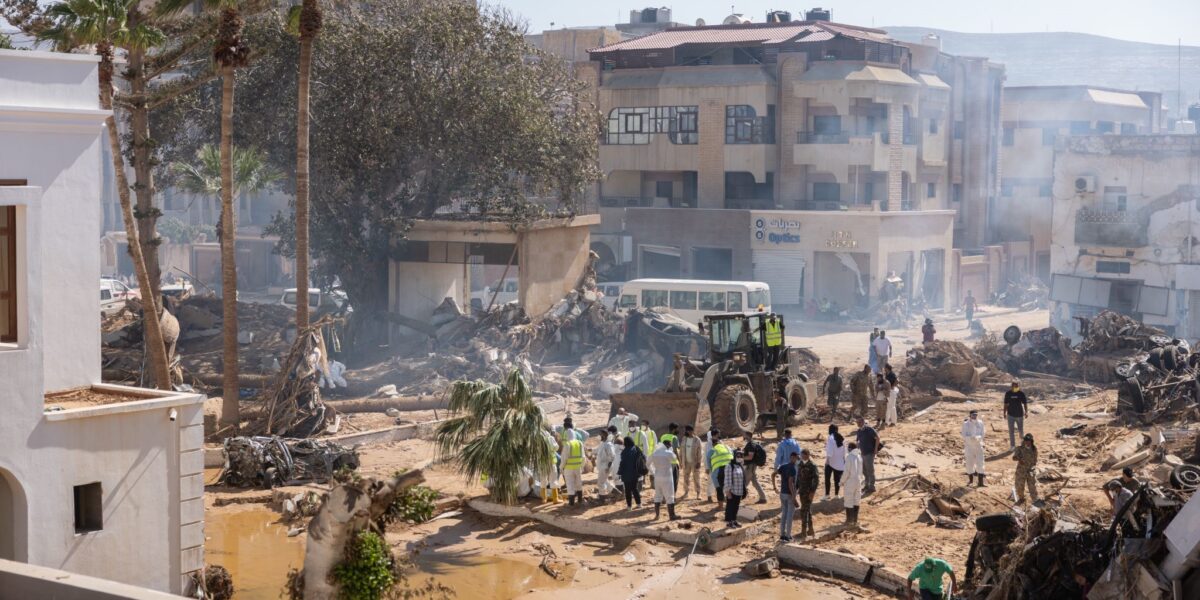In 2022, during the monsoon season, Pakistan experienced one of the worst humanitarian disasters in its history. The torrential rains, up to 5 times more intense than the average of the last 30 years, combined with the rapid melting of glaciers caused by an abnormal heatwave, led to violent floods that submerged a third of the country. This tragedy represents one of the prime examples of how the effects of climate change are becoming increasingly devastating and evident.
Over 33 million people were affected by this disaster, and 8.2 million men, women, and children had to leave their homes. This is the most serious mass displacement caused by a natural disaster in the last ten years.
The communities in the most affected provinces, such as Sindh, have been facing a dire situation: stagnant water and the destruction of clean water sources have led to an exponential increase in diseases like malaria, dengue, cholera, acute diarrhoea, and typhoid. Additionally, the risk of hunger – even one year later – is looming: the emergency has further worsened the food situation in the region due to rising food prices, loss of livestock, fields, and other income opportunities.
Since the onset of the emergency, with the support of the Directorate-General for European Civil Protection and Humanitarian Aid Operations, CESVI launched the project “Humanitarian Assistance for Vulnerable Communities Affected by Floods in Pakistan”. Thanks to the European Union’s support, CESVI has been able to implement a multi-sectoral intervention to provide life-saving humanitarian aid to the most affected populations and enable them to initiate the first phase of reconstruction.
In the initial stages of the emergency, CESVI provided financial support to 80,964 people from the most vulnerable families, allowing them to address their immediate humanitarian needs. In collaboration with the Danish Emergency Management Agency (DEMA), operating under the European Union’s intervention, CESVI addressed the urgent need for clean drinking water. In two months, CESVI has distributed filtered clean water to 69,336 people in the most affected areas. At the same time, damaged water sources were restored, ensuring access to clean drinking water for 89,525 people. Furthermore, CESVI extended access to portable emergency toilets for 25,890 individuals to enhance sanitation conditions. Additionally, materials for the rehabilitation of household sanitation services were provided to 7,939 households, supporting 51,604 individuals.
To mitigate the risk of the spread of waterborne diseases, CESVI placed a strong emphasis on hygiene promotion, offering essential personal hygiene items including women’s dignity kits to 156,000 people. An awareness campaign on hygiene promotion was also conducted for the population of the region.
Mosquito nets were also distributed to protect livestock, which is the main source of income for local communities. A vaccination program was also instituted to prevent the spread of diseases among animals.
Simultaneously, CESVI distributed 9,393 kits including construction materials to communities to help them rebuild their homes. Additionally, CESVI addressed protection concerns by providing solar lights and mobile phone chargers to 24,000 families.
Pakistan is one of the countries most affected by the negative impacts of the climate crisis worldwide. Even this summer, in the monsoon season, exceptionally heavy rains over Southern Asia caused severe floods. In Punjab, more than 750,000 people were affected: over 630,000 people were forcibly displaced, 42,000 houses were damaged or destroyed and almost half a million acres of crop were severely impacted.
CESVI, with the support of the European Union, immediately stepped up to provide support to the communities in Punjab affected by the 2023 floods with economic support to help them prepare for the incoming winter season and with the distribution of water and sanitation kits to mitigate the risk of waterborne diseases in the area.
Overall, thanks to this intervention, CESVI will be able to assist over 220,000 people.
Shama, one of the women supported by CESVI with the EU’s assistance in Sindh, was a happily married mother with six children to care for. Her family relied entirely on agriculture for their livelihood, but when the floods struck, everything changed suddenly. Their homes were destroyed, and the crops were swept away. Amid chaos and despair, Shama and her family found themselves without a safe place to stay. Food was scarce, and sometimes they were forced to go to bed hungry. They lost everything they had: the crops, the animals, and all their belongings.
With the help of CESVI, Shama received food and shelter, a glimmer of hope in a time of extreme difficulty. The road is long, but they are trying to rebuild what was lost, looking forward to a better future.


